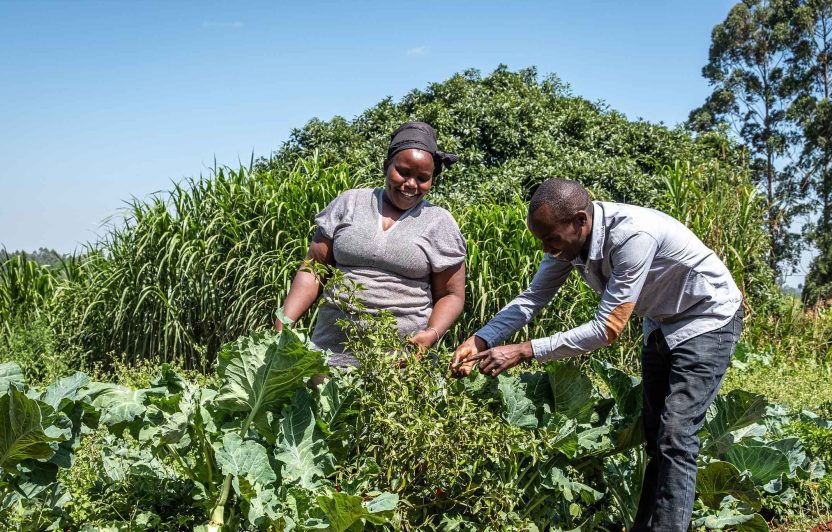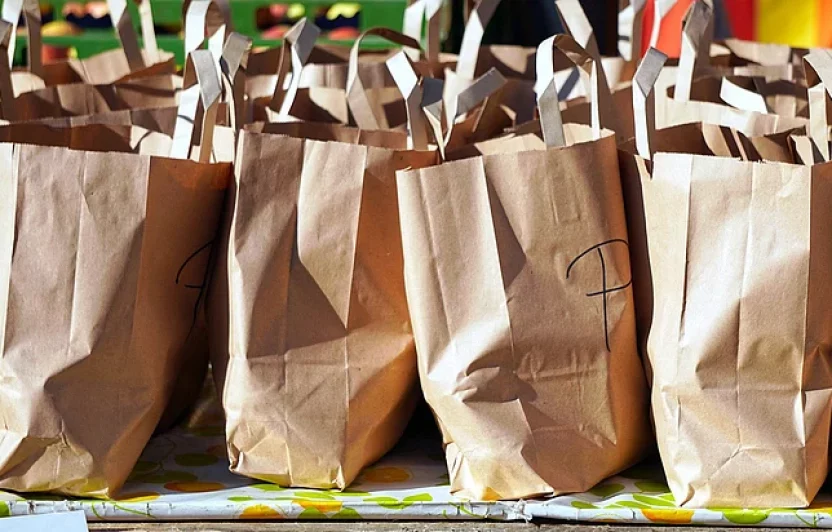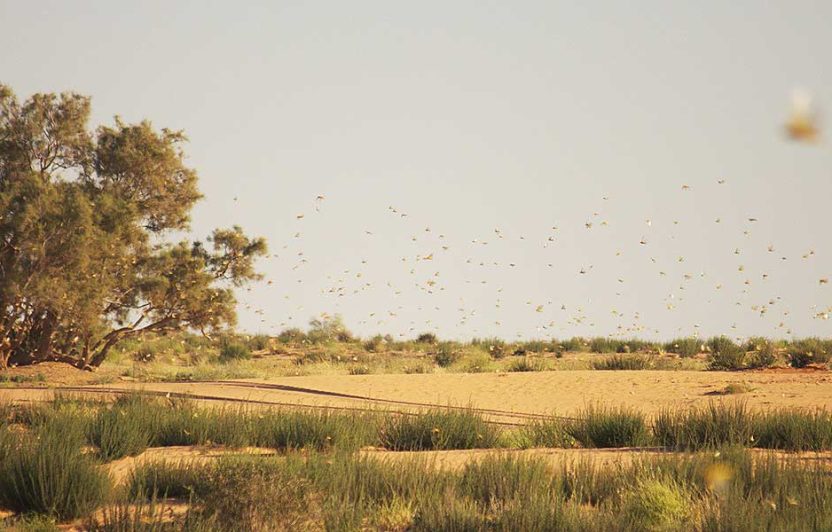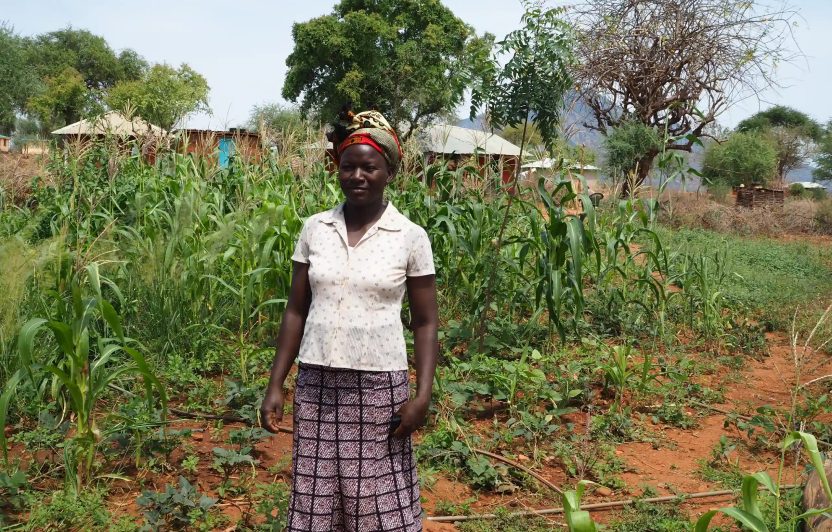“Life was good here in the past,” explains the 82-year old Neftali Kian’a Miru from Marimanti, a village in the hot and arid Tharaka Plain. “We had enough to eat and people respected nature”. His two daughters, Virginia and Sabella, her daughter-in-law Josephine and his great-granddaughter Baraka prick up their ears. The old man continues: “It is now home to more and more people and they all need land and wood”. They have even cleared trees on Ntugi Hill,” he splutters. Nobody would have dreamt of doing that in the past as the summit of Ntugi is the place of their ancestors. “The fewer the trees, the less it rains. Droughts increase, yields fall and life becomes increasingly difficult”.
Without rain starvation looms
In addition, most arable farmers have switched to modern hybrid varieties that produce a higher yield. As a result, farmers are now reliant on the seed producers as they are unable to produce these hybrid seeds themselves. However, these new varieties cannot cope with the dry climate in Tharaka,” warns Neftali. “If it fails to rain, the crops soon wither and the result is often famine”. His widowed daughter Sabella nods in agreement: “In 2009, many families had to rely on food aid and earned nothing from their work in the fields.” She knows this from personal experience as she too had to sell her cattle so that she and her three children could survive.
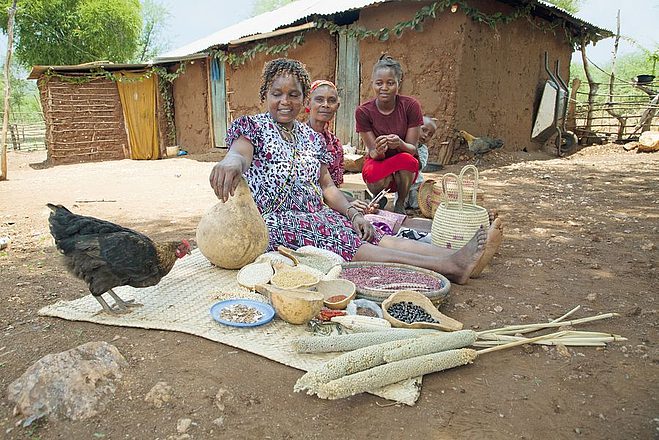
Traditional varieties are more robust
Sabella is now back on her feet having chosen a different route. She belongs to a group of farmers who are taking part in an initiative run by the Institute for Culture and Ecology (ICE), a Kenyan NGO and one of Biovision’s local partners. ICE is committed to protecting the environment, maintaining traditional cultures and working to improve the lives of rural communities. In particular, it encourages farmers to use a combination of traditional knowledge and modern, organic methods of cultivation. This will ensure a sustainable use of natural resources. Reforestation using suitable tree species and the distribution of old crop varieties play an important role. Neftali and his daughters endorse this approach. For example, Sabella is cultivating five different types of finger millet and eleven species of sorghum. She grows five types of mung beans, eight types of cowpea and three pea varieties. “Demand for my produce is high and the sale of seeds is also going very well,” she says contentedly. Last year, she earned 50 000 Kenyan shillings (about CHF 500) just from seed sales.
Theory and practice
Sabella is convinced that the main factor in her success has been the practical support that ICE has provided locally. Her farmer group has also started to plant trees. They encourage the charcoal burners to leave the holy sites and are working to plant one new tree for every free felled. Once again, it’s green on sacred Ntugi Hill and Neftali breathes a sigh of relief when he says “Our knowledge will be retained even when we oldies are long gone”.


